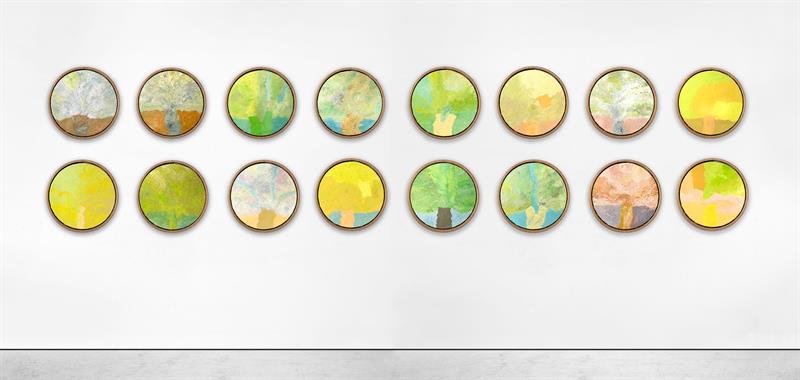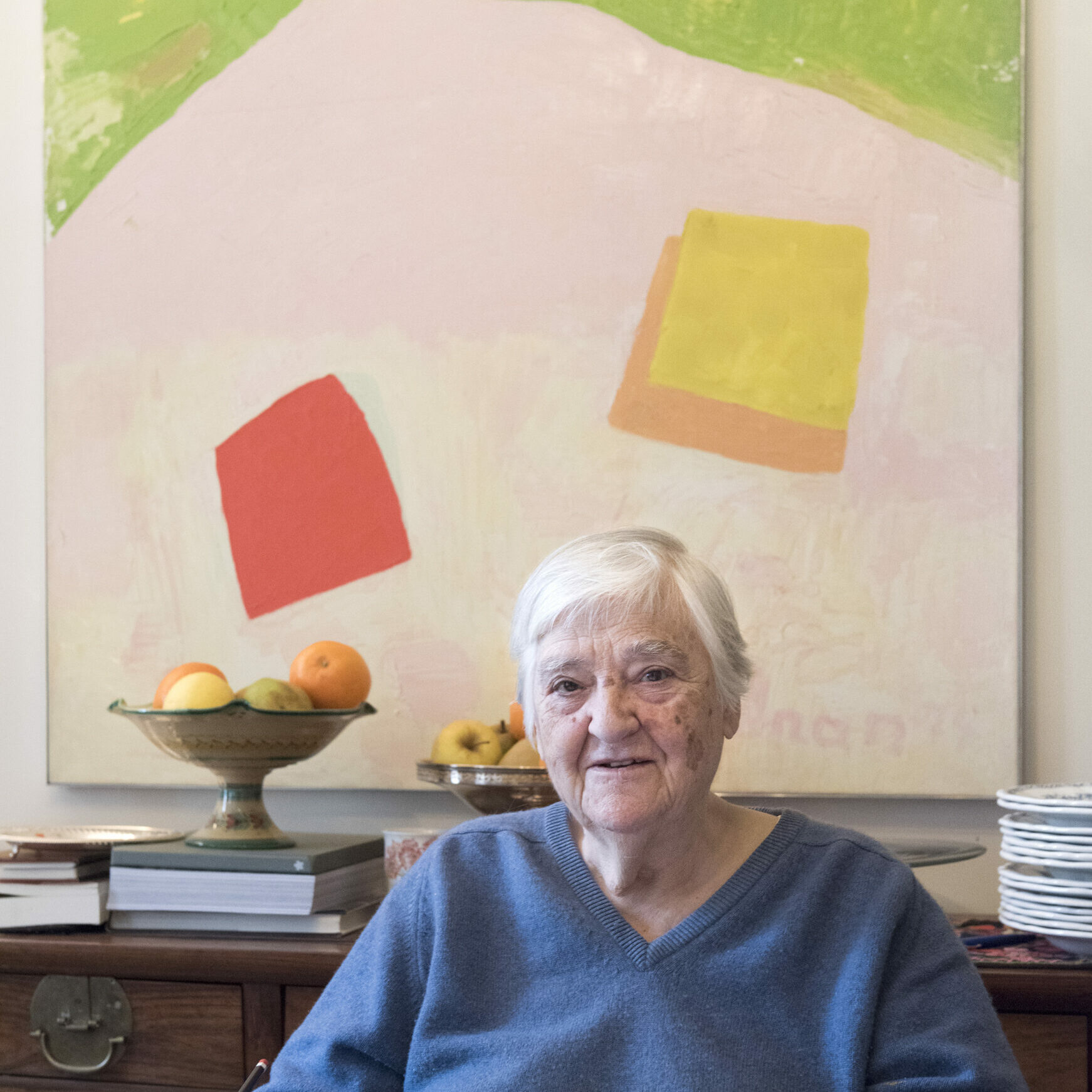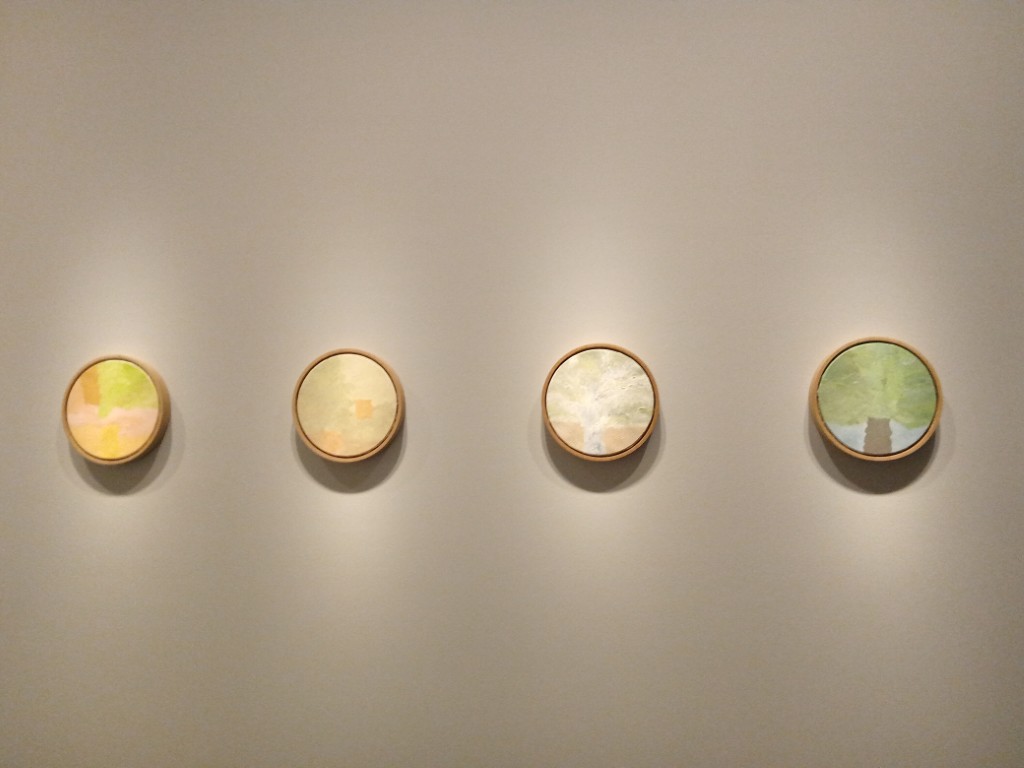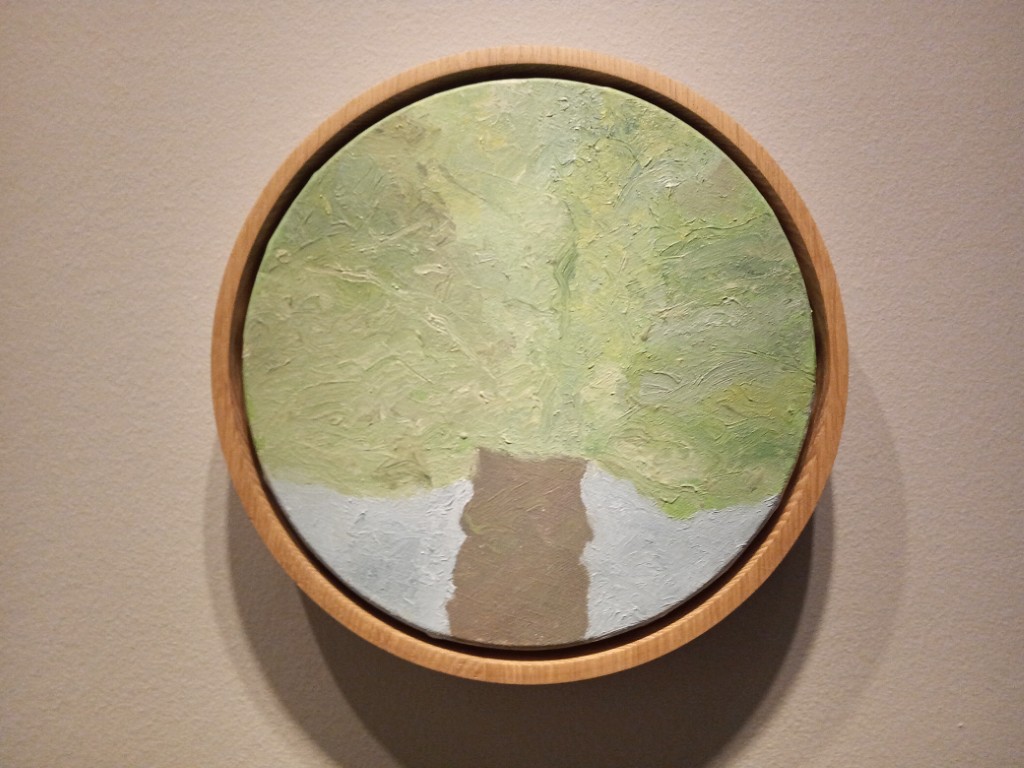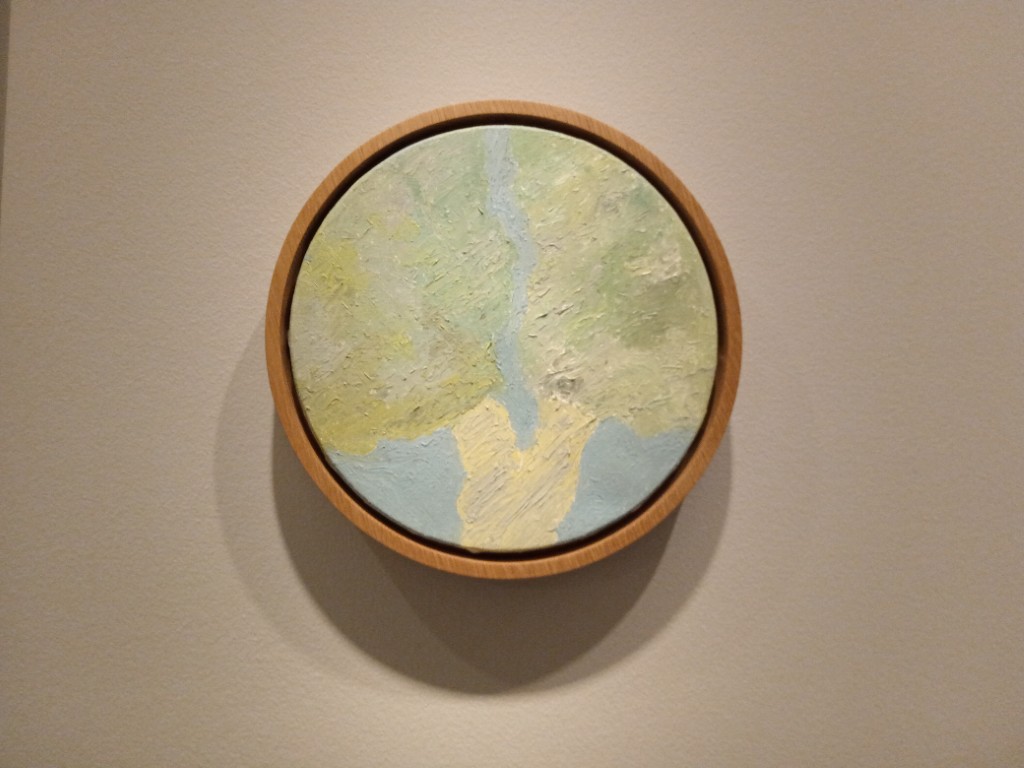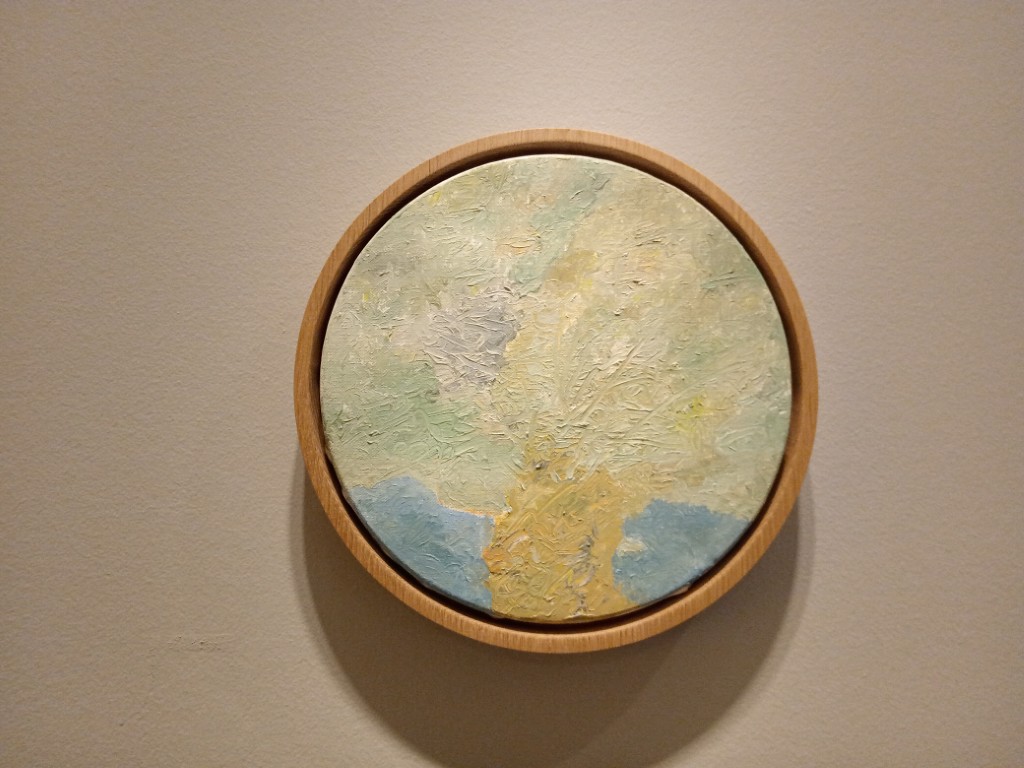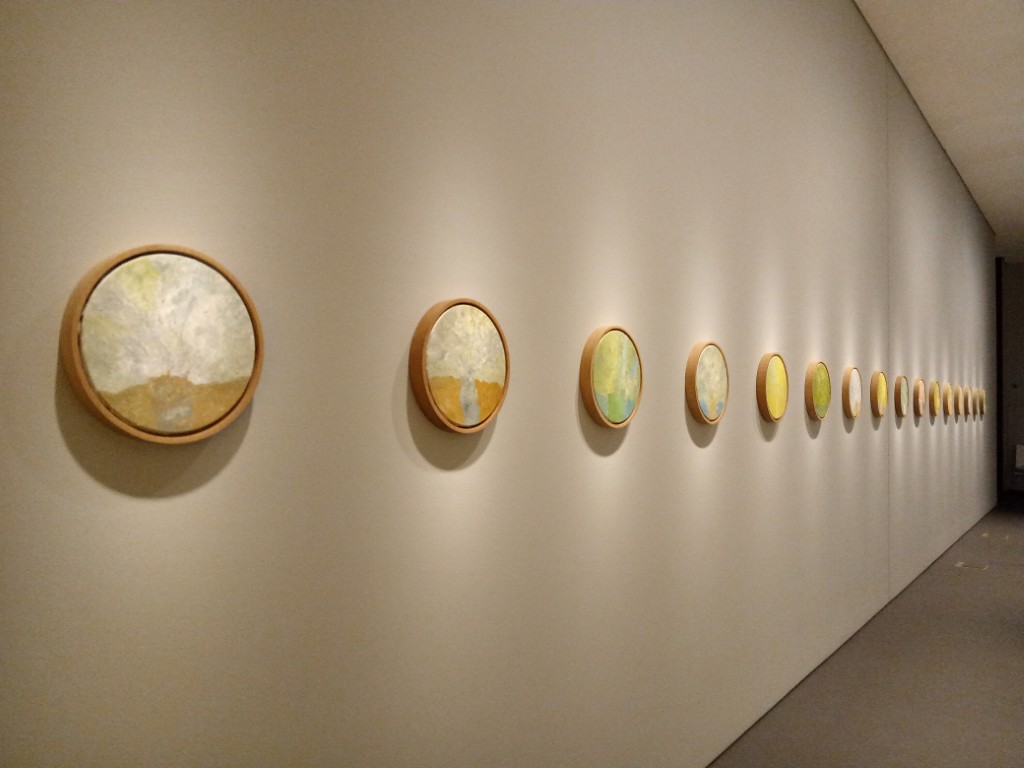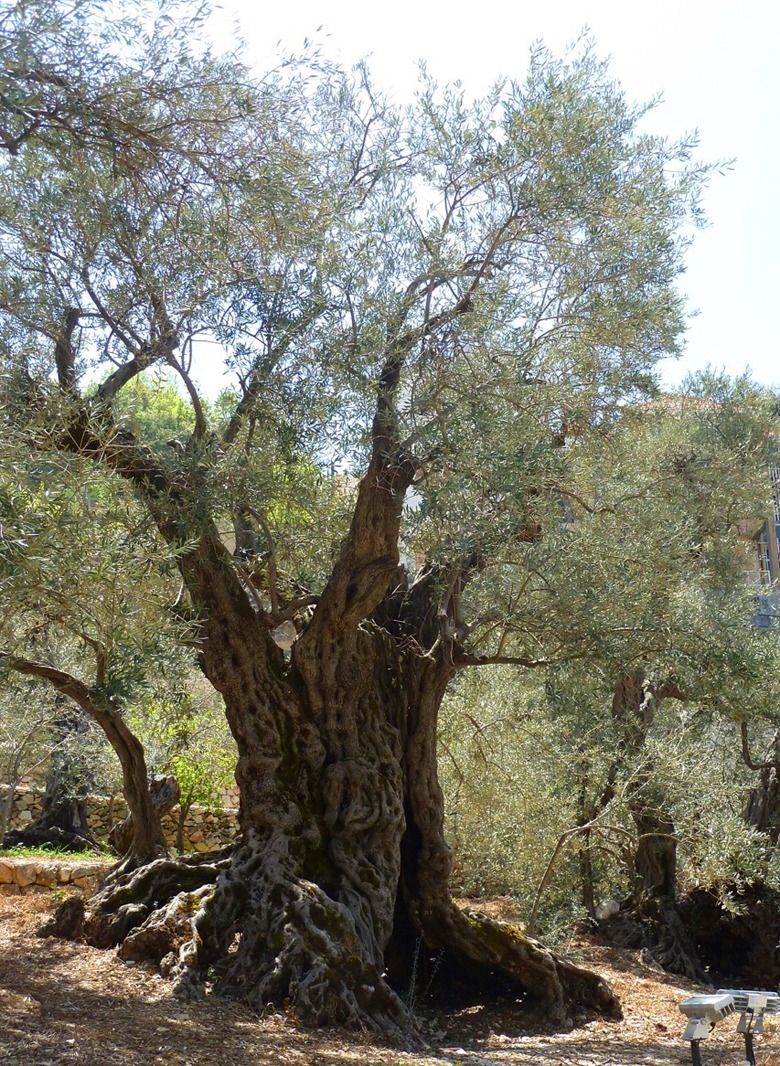The National Museum of Contemporary Art in Athens is exhibiting 16 oil on canvas paintings by Etel Adnan (Saradar Collection, Paris/Beirut) depicting the olive tree. Their number corresponds to the number of ancient olive trees in the village of Bchaaleh in northern Lebanon, which, according to local tradition, have existed since the time of Noah’s biblical flood. With this work, Adnan pays tribute to the olive tree, recognizing its importance to Mediterranean and global culture. As she herself says: “If we want to save our planet, Earth, we must start with this beneficial tree of magical beauty.”
ETEL ADNAN
Lebanese-American poet, essayist, and visual artist. In 2003, Adnan was considered “the most famous and successful Arab-American contemporary writer” by the academic journal MELUS: Multi-Ethnic Literature of the United States. In addition to her literary work, Adnan has created visual artworks using various media, such as oil paintings, leporello, and tapestry, which have been exhibited in galleries around the world in recent years.
Etel Adnan was born in 1925 in Beirut, Lebanon. Her father was a Sunni Muslim-Turkish high-ranking official and classmate of Kemal Atatürk from a wealthy family, while her mother was Greek Orthodox from Smyrna, from a family living in extreme poverty. They met in Smyrna during World War I, while her father was serving as governor of the city. After the destruction of Smyrna, they emigrated to Beirut.
Her reputation began to grow, and Adnan enjoyed international recognition and financial success for her work after the age of 80, with her tranquil, meditative canvases, recognizing her integral role and unique aesthetic vision in the international art world. She is now considered an example for young artists.
BCHAALEH
Nestled in the heart of Lebanon’s Batroun District, Bchaaleh is a picturesque village perched at an altitude ranging from 1,200 to 1,350 meters above sea level. Its name, derived from the Syriac “Beit Chaali,” translates to “the place of glorification and adoration,” reflecting its rich cultural and spiritual heritage.
Bchaaleh is renowned for its ancient “Sisters” olive trees, also known as the “Olive Trees of Noah.” These venerable trees, some estimated to be around 6,000 years old, are among the oldest in the world and continue to produce high-quality olive oil to this day.
The village offers breathtaking panoramic views of the Mediterranean Sea and the surrounding landscapes, making it a haven for nature enthusiasts and hikers. The Bchaaleh Trails provide visitors with an opportunity to explore the area’s natural beauty, historical sites, and cultural landmarks.
Architectural highlights include the Saint Stephen’s Church, one of the largest in the Batroun region, and the historic Mar Doumit Monastery. Additionally, the Hosn Fortress, located at the northern end of the village, stands as a testament to Bchaaleh’s historical significance, with ruins dating back to Greek, Roman, and Byzantine periods.
Bchaaleh’s unique blend of ancient history, cultural richness, and natural splendor makes it a must-visit destination for those seeking to experience the timeless charm of Lebanon’s mountainous villages.

